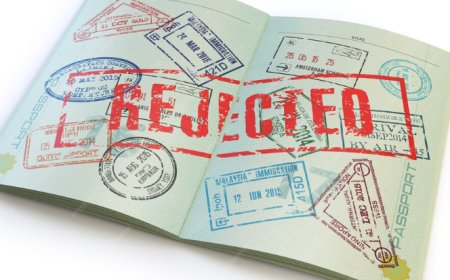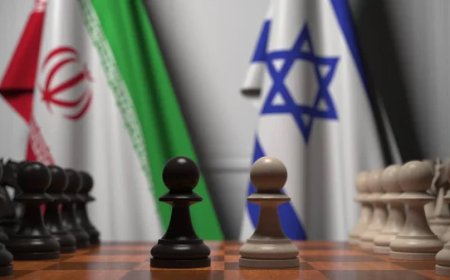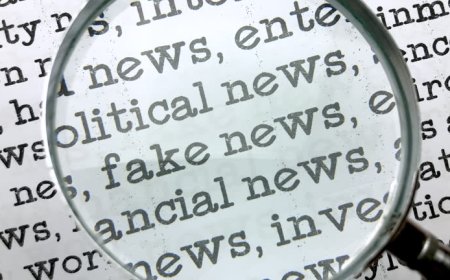When Madness Becomes Policy and Policy Becomes a Punchline
In trying to weaponize chaos, Trump has made America’s foreign policy more coherent than ever -- to its adversaries. He is no longer a mystery. He is a meme. And the world has learned to scroll past him.

Once upon a time in Washington -- not too long ago -- an orange-tinged man with a penchant for fast food and faster decisions decided that the best way to run the world’s most powerful country was by convincing everyone he might just press the nuclear button if someone sneezed the wrong way.
That man, Donald J. Trump, is now back in office, and with him returns what political scientists generously call a “foreign policy doctrine” and the rest of the world simply calls “a panic attack with nukes.”
They call it the Madman Theory. The idea is simple: if you act irrational enough, volatile enough, and, frankly, mad enough, your enemies will surrender -- not out of respect, but out of fear you’ll accidentally bomb the wrong country while live-tweeting about golf.
Trump, ever the entrepreneur, has rebranded this Cold War-era concept with the enthusiasm of a real estate tycoon naming a condo after himself. Except now, instead of buildings, its alliances being bulldozed. And instead of tenants, its terrified allies, adversaries, and the occasional Canadian being asked if they want to become the 51st US state.
Last month, in what can only be described as an Oscar-worthy performance in the category of “International Gaslighting,” Trump was asked if he intended to launch a joint attack on Iran with Israel. His response: “I may or may not do this. Nobody knows what I will do.” A Schrödinger’s foreign policy, where the missiles are both launched and not launched until CNN tells us which.
Not long after announcing a two-week ceasefire to allow diplomacy, Trump bombed Iran. The ceasefire was apparently less a truce and more a countdown. The world watched in disbelief—not at the bombing, but at the predictability of it. Because, paradoxically, Trump’s unpredictability has become predictable. He will contradict himself. He will reverse policy. And somehow, he’ll insist he was right all along, even if the transcript disagrees.
Professor Peter Trubowitz of the London School of Economics framed it more diplomatically, calling Trump’s foreign policy the most centralized decision-making system since Richard Nixon. What he really means, of course, is that it’s a one-man show. The Oval Office is now less a chamber of deliberation and more a roulette table in Las Vegas, with Trump spinning the wheel and the world holding its breath.
Trump has institutionalized eccentricity. What once seemed like impulsiveness is now routine. One moment he’s calling Kim Jong Un “Little Rocket Man,” the next he’s exchanging love letters. He insulted Canadian Prime Minister Justin Trudeau and then called him “a nice guy” two days later. He threatened to invade Venezuela, tried to buy Greenland, and wondered aloud why the US doesn’t just “take back” the Panama Canal -- as if international sovereignty were a misplaced pair of cufflinks.
But this isn’t just comedic gold; it’s a calculated game. Trump’s erratic behavior is not just performance—it’s policy. The Madman Theory is his geopolitical poker face. Nixon may have whispered it to Henry Kissinger, but Trump blurts it out on stage while live-streaming on Truth Social.
And it’s working -- on some. At the latest NATO summit, European leaders fell over themselves to flatter Trump. NATO Secretary General Mark Rutte penned a note addressed “Dear Donald,” which Trump gleefully waved around like a valentine in a middle-school hallway. In it, Rutte praised Trump’s “strong action in Iran” -- a polite euphemism for “you bombed them again, thanks for letting us know afterward.”
Then came the big reveal: NATO members agreeing to spend 5% of their GDP on defense -- a five-alarm fire in the accounting departments of European governments. It was a theatrical offering, not of unity, but appeasement. The continent that once shaped empires now throws military budgets at Trump the way peasants offered gold to a mercurial king.
Sir Keir Starmer, known for his careful, measured tones in the House of Commons, now sounded like a hawkish Pentagon intern, endorsing higher defense spending to “meet the moment.” The moment being Trump’s wrath. You could almost hear Winston Churchill rolling in his grave, muttering: “We used to defy tyranny; now we budget for it.”
But not everyone’s buying what Trump is selling. His magic doesn’t seem to work on strongmen with experience in chess rather than checkers.
Take Vladimir Putin. Trump dialed him up recently and emerged “disappointed” that Putin didn’t agree to end the war in Ukraine. Apparently, the plan was to ask nicely. Unsurprisingly, Putin declined the invitation to world peace via voicemail.
And Iran? Far from cowing under pressure, they now seem more determined to pursue nuclear capabilities than ever. According to Professor Michael Desch, Tehran likely sees nuclear weapons as its best bet for survival. The logic is grimly sound. Saddam Hussein gave up his weapons and was hanged. Muammar Gaddafi disarmed and was dragged through the streets. Kim Jong Un kept his -- and gets love letters from Trump. The pattern is painfully clear.
“If you want to avoid American democracy being delivered to your doorstep at 30,000 feet, get yourself a nuke,” says nobody officially, but everyone understands. What Trump sees as strength, enemies interpret as a compelling case for deterrence.
Even among allies, there’s a creeping sense of unease. Trump and his vice president, J.D. Vance, reportedly used harsh and demeaning language with Ukrainian President Volodymyr Zelensky. And yet, Zelensky still allowed American corporations to tap into Ukraine’s mineral reserves. It’s unclear if this was diplomatic negotiation or geopolitical arm-twisting. Either way, the message was clear: play ball, or play alone.
And therein lies the problem. The Madman Theory assumes opponents will always blink first. But what happens when they don’t? What happens when they know your moves, your insecurities, and your desperate thirst for praise? Trump may be unpredictable in action, but he’s painfully predictable in motivation.
Anthony Scaramucci, who had a brief yet explosive tenure as Trump’s communications director, revealed that Trump often mocks foreign leaders behind closed doors, laughing on Air Force One while replaying their praise. World leaders may think they’re manipulating him with flattery, but it’s quite possibly the other way around. The emperor has no clothes -- but he does have a Twitter following.
This brings us to credibility -- or what’s left of it. If your diplomatic doctrine is “I may or may not do this,” don’t be surprised when no one invites you to mediate anything more serious than a kindergarten dispute.
Professor Julie Norman warns that America is now seen as an unreliable partner. And in diplomacy, reliability is everything. When allies believe they’re one tweet away from betrayal, they begin to hedge their bets. They build backup plans. They start wondering if maybe China isn’t so bad after all.
German Chancellor Friedrich Merz openly called for European autonomy. It wasn’t a suggestion -- it was a warning. The strategic divorce papers have been drawn. Professor Trubowitz confirms that America’s priorities are shifting -- from leading the free world to freelancing foreign policy like a gig economy powerbroker.
If Europe wants to go solo, it will need to build its own security infrastructure. Professor Desch points out the obvious: Europe currently relies heavily on American intelligence and military capabilities. To replace those will require massive investment, manpower, and time -- none of which come cheaply. Desch wryly notes that Western Europe might look to Poland for a model of defense readiness. Poland, after all, remembers what it’s like to be abandoned.
But even if Europe succeeds, the world will have fundamentally changed. The America of old -- the reliable anchor, the moral compass, the diplomatic engine -- has given way to something else entirely: a volatile force, driven by ego and algorithms, swinging between chaos and charm, occasionally grounded by bureaucracy but rarely by principle.
Trump’s unpredictability may have altered alliances, reshaped budgets, and forced hard conversations across continents. But as a long-term strategy, its expiration date may already be past due. Once the world learns to expect madness, it stops fearing it. The Madman loses his mystery, and with it, his power.
Perhaps that’s the final irony. In trying to weaponize chaos, Trump has made America’s foreign policy more coherent than ever -- to its adversaries. He is no longer a mystery. He is a meme. And the world, it seems, has learned to scroll past him.
H. M. Nazmul Alam is an Academic, Journalist, and Political Analyst based in Dhaka, Bangladesh. He can be reached at [email protected]
What's Your Reaction?
















































































